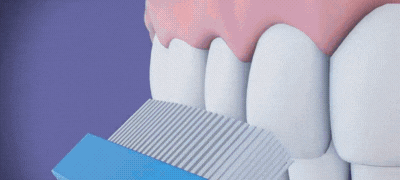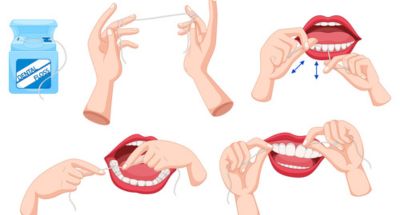News + Articles
What Not to Do After Dental Implants
Proper care after implant oral surgery is crucial for healing. It is also essential for the long-term success of your new smile. This guide provides clear instructions to avoid common pitfalls. They ensure a smooth recovery and the longevity of your implants.

What Not To Eat After Dental Implant Surgery
Eating Hot or Hard Foods
You’ve invested in a beautiful smile, and now it’s time to nourish your body for the best possible healing! This is an exciting time — your implant bonds with your jawbone.
Osseointegration is the term used to describe this process. Choosing the right foods supports this process. It sets the stage for long-term success.
Avoid hard foods. Treat yourself to soft, tasty options. This is a chance to explore gentle flavors and textures.
Steamed vegetables, mashed fruits, yogurt, and well-cooked pasta are delicious. They also help your healing.

Avoid hot foods. Enjoy your favorites at the perfect temperature. Warm soups are comforting.
However, pick lukewarm or room-temperature treats in the first healing phase. This extra care protects your implant site and promotes comfort.

Your dentist is your guide to delicious healing. Partner with them for more great, safe food ideas! As your recovery progresses, you’ll enjoy a wider variety of the foods you love.
Sticky and Chewy
Avoid some textures for a while to heal best after your implant surgery. Sticky or chewy foods, like caramel, toffee, gum, and dried fruits, can adhere to the implant.
Gummy candies can too. Giving your implant time to fuse with your jawbone would be best. Do this before eating these types of foods.
Focus on delicious alternatives: There are so many beautiful snacks and treats! Enjoy soft fruits, yogurts, puddings, and well-cooked grains. Your dentist can offer more tips. They will keep your tastebuds happy as you heal.
Protect your investment. Choose softer foods in this phase. It’s a simple way to safeguard your implant and ensure a smooth recovery. Soon, you’ll enjoy all your favorite foods again with your beautiful new smile!

Acidic
While your gums are healing, opt for gentle flavors that promote comfort. Avoid acidic choices like tomatoes, citrus fruits, vinegar dressings, and sodas.
Try these tasty alternatives:
- Ripe bananas and melons: Soft textures and sweet flavors.
- Creamy yogurt: Provides a soothing sensation and a boost of calcium, which is good for bone health.
- Water & herbal teas: Hydration is critical for healing! Choose unsweetened options instead of sugary sodas.
This temporary change ensures a smooth recovery. It lets you enjoy more food and drink as your gums heal.
Skip Spicy Foods
During the first stages of recovery, soft, nourishing foods are your best friends! They’re easy to enjoy and promote a smooth healing process.
Here are some delicious ideas to get you started:
- Fruits and vegetables: Ripe bananas, creamy applesauce, mashed sweet potatoes, velvety avocados… explore the world of soft, sweet flavors.
- Grains are good. Enjoy the warmth of oatmeal. Also, try comforting cream of wheat, fluffy rice, or cooked pasta.
- Proteins are in scrambled eggs, flaked fish, and silken tofu. They are also in well-cooked, mashed lentils or beans. They provide gentle protein to support your recovery.
- Dairy products, such as smooth yogurt, cottage cheese, and soft cheeses, are a tasty way to get more calcium.
Treat your tastebuds: A touch of honey in your yogurt, a sprinkle of cinnamon on your oatmeal… simple additions can make meals even more enjoyable.
Why focus on gentle flavors? Choosing soothing foods protects the surgical site.
They also create the ideal environment for your new implant to thrive. You’ll be back to enjoying your favorite spices in no time!

Activities to Limit
Strenuous Exercise
In the early stages after your implant surgery, your body needs time to rest and heal. Instead of strenuous activity, focus on these benefits of light activity:
- Gentle walks or light stretches promote healthy blood flow. This flow supports healing without stressing the implant site.
- Improves comfort: Staying active can reduce stiffness and discomfort as you recover.
- It boosts your mood. Even light exercise can release endorphins. They help you feel better and more hopeful about healing.
- Listen to your body. Begin and raise your activity level as your dentist recommends. Opt for activities you enjoy and find comfortable!
Focus on a solid foundation. In this phase, focus on gentle movement.
It’s an investment in the long-term success of your implant. Soon, you’ll return to your regular fitness routine, feeling more vital than ever!

Do Not Remove the Gauze Packs Right Away
Gauze is crucial for controlling initial bleeding by promoting clot formation. It also reduces swelling and discomfort. It protects the surgical site, keeps it clean, and prevents irritation.
Smoking
It might be tempting to smoke after your surgery. But not smoking is one of the best ways to help your healing and the success of your new implant.
Here’s why:
- Recover faster. A smoke-free place gives your body the best conditions. It lets you heal.
- A stronger implant bond comes from not smoking. Your implant can the.n join with your jawbone. This bond makes a strong base for your new smile
- Better health is an excellent chance to take a positive step for your well-being. It’s not for your teeth.
Support for success: If quitting is challenging, your dentist is here to help! They can offer resources and strategies.
These include nicotine patches, gum, and counseling. They make the process easier.
This is a beautiful reward. Your commitment to a smoke-free recovery is an investment in your health.
It is also an investment in the longevity of your new smile. It’s more than worth it!

Drinking alcohol
In the early stages of your implant surgery, your body needs great support. It helps healing be fast and efficient.
A celebratory drink might be tempting. But water, milk, and non-caffeinated teas are your best choices now.
Drinking fluids boosts the recovery process. They keep your body hydrated. This is crucial for tissue repair and a smooth recovery.
Proper hydration supports more robust implant integration. It helps your implant fuse with your jawbone. This fusion creates a sturdy smile foundation.

Celebrate your success later! Once healed, you can savor it. It will mark your successful dental journey.
Enjoy the anticipation: Think of this as a way to make that future celebration even sweeter! Focusing on hydration now helps ensure a robust and pretty smile. It also provides a lifetime of joy.
See more: How Long After Getting Dental Implants Can I Drink Alcohol
Use a straws
Do you know how using a straw creates suction in your mouth? That force can dislodge the initial blood clot, protecting your surgical site.
Losing this clot exposes bone and nerves to a painful condition called dry socket.
Instead, drink from cups, bottles, spoons, or syringes the first week. We know sacrificing your daily iced coffee is hard, but it ensures the dry socket stays away.

Touch The Implant Site
It’s natural to be curious about your implant. But, it would be best if you resisted the urge to touch the surgical site.
Instead of focusing on the temptation, use that energy for things you enjoy. Play a game, watch a movie, or catch up with friends.
Always wash your hands well. Do it before eating, brushing, or handling dentures.
This will protect your implant. By cleaning and finding healthy hobbies, you’re protecting your new smile!

Oral hygiene practices to avoid
Good oral hygiene is crucial for the success and longevity of your implant. This is true in both the initial recovery and long term.
Here, it would be best if you changed your routine to safeguard your healing implant:
Brushing
Right after your surgery, avoid brushing the implant area. Do this for the first few days.
Continue to clean the rest of your mouth using a soft-bristled toothbrush.
Once approved by your dentist, resume brushing around the implant. Use a soft, gentle, circular motion with a soft-bristled toothbrush.
Be careful to avoid hard brushing. It could irritate the sensitive gums.

Flossing
Hold off on flossing around the implant during the initial healing period. Please wait until your oral surgeon says it’s safe. This is usually after some gum healing.
When permitted, proceed. Use recommended tools like interdental brushes or floss threaders. They clean around implants.

Vigorous Rinsing
Don’t rinse or spit for the first 24 hours. Do this unless your dentist advises otherwise. This allows the blood clot to stabilize.
After 24 hours, swish with warm salt water. Mix ½ teaspoon salt with 8 ounces of warm water.
Or, use a prescribed mouthwash as directed. Avoid vigorous swishing or spitting.
Be careful of the surgical site. Avoid direct contact with your toothbrush or floss.
But keep cleaning around the implant, as your dentist said. This is crucial for maintaining oral hygiene and promoting healing.
General Oral Hygiene Tips
Consider rinsing with salt water many times a day. Your dental care provider suggested this.
It keeps the surgery area clean and reduces swelling. Go checkups and dental checkups. They check your heart and help with oral hygiene.
Addition Tip
- Use a cold compress: Apply a cold compress to the outside of your cheek to reduce swelling after surgery.
- Get enough sleep: Proper rest allows your body to heal more.
- Manage stress. Chronic stress can slow healing. Practice relaxation techniques like deep breathing or meditation.
See more: How do you heal faster after implants? Guidance from experts
Recognizing Complications
Signs of Infections
Infections after implant surgery are rare. But it’s essential to know the signs.
Then, you can seek quick care and protect your investment. Here’s what to watch for:
- Redness: If redness around the implant site persists or worsens, contact your dentist.
- Swelling: The gums or face swell near the implant. Go to checkups for a checkup. If you see anything near the implant, ask your dentist. This is especially true if it has a bad smell.
- Fever may mean infection. Tell your dentist about it.
- Pain around the implant can increase or persist. It needs evaluation if not relieved by medication.
- Loose: If you feel the implant is loose, have your dental pro check it.
Early Action is Key: Don’t hesitate to contact your dentist if you notice any of the above! They will assess the situation.
They will choose the right action. It will keep your implant healthy and you comfortable.
Actively caring for oral health is the best way to ensure your implant’s success. Remember that. It is also vital to a healthy, confident smile!
Signs of Implant Failure
Implant failure is rare. But it’s essential to know the signs of needing more care.
Early attention to these signs is crucial for finding the best solutions:
- If your implant gets loose or wobbly, contact your dentist right away.
- Persistent Pain: Discomfort is around the implant. It doesn’t get better with time or medicine. It would be best if you had it evaluated by your dentist.
- You may need more investigation if you have recurring infections despite treatment. You may also need a new care plan.
- If the gums around your implant recede, see your dentist.
- Chewing may become difficult with your implant.
This is a dental checkup. Your dentist is dedicated to ensuring that your implant remains healthy in the long term.
Open communication and reporting any concerns allow for the best possible outcome. Remember, most implants work well. Finding and fixing problems early often leads to good outcomes!
What to Do If You Experience Complications
You should contact your dentist immediately if you notice any of the above symptoms. Early intervention is essential to manage any complications.
Your oral surgeon will assess the situation. They will find the cause of the problem and suggest the right treatments.
This might involve medicine to manage an infection. Or, it might include changes to the implant itself.
In some cases, the implant may need more extensive measures. These are to ensure its health and function.
Long-Term Care and Maintenance
Your new implant is a significant investment. These simple strategies will help you make the most of it:
- Partner with your checkups. Regular checkups allow your dentist to monitor the health of your implant. They let the dentist catch any issues early and ensure everything works flawlessly.
- Champion your oral health: good brushing and flossing help. Regular cleanings also help. They are your best defense against threats to your implant.
- A healthier lifestyle means quitting smoking. It offers enormous benefits for your teeth and your well-being. Your dentist can help you create a successful plan.
- Make intelligent food choices. They will nourish your body with a balanced diet. This diet will give you strong teeth and bones. Avoid using your teeth as tools. Also, avoid biting into tough foods. This will protect your implant from damage.
The reward? These simple habits create the ideal environment for your implant to thrive. They will safeguard your beautiful smile for years to come!
Frequently Asked Questions
How Long Should You Rest After A Dental Implant?
After dental implant surgery, rest for at least 24-48 hours. This allows the implant to start healing. It also helps reduce swelling and discomfort.
How Long After Dental Implants Can I Eat Normally?
You can return to a regular diet about a week after the surgery. This is once the initial healing has occurred. Start with soft foods and reintroduce more complex foods as comfort permits.
Can I Use Toothpaste After An Implant?
Yes, but using a soft-bristled toothbrush and gentle toothpaste is advisable. Avoid brushing the implants for the first few days. Instead, rinse it with salt water or prescribed mouthwash.
How To Heal Faster After Dental Implants?
To heal faster, follow good oral hygiene. Eat a vitamin and mineral-rich diet. Avoid smoking. Follow all post-operative instructions from your dentist. Also, ensure adequate rest and keep your head elevated to reduce swelling.
Can I Drive After Implant Surgery?
It would be best if you did not drive right after dental implant surgery. This is especially true if you had sedation or anesthesia. Arrange for someone to drive you home and rest for the day.
Foods Not To Eat After Getting Dental Implants
Avoid hard, sticky, chewy, or crunchy foods immediately after surgery. These include nuts, seeds, hard candies, and tough meats. Also, avoid hot or spicy foods that irritate the surgical site.
Conclusion
You must maintain your implants often. This is crucial for their longevity and your oral health. It involves adhering to optimal oral hygiene practices and making healthy lifestyle choices. Additionally, You need regular general dentistry visits. Follow these tips. They will keep your smile vibrant and healthy for many years.

Dr. Ronald Pham, DDS, is a Doctor of Dental Surgery who graduated from the USC Ostrow School of Dentistry in 2015. With over 8 years of experience in restorative dentistry, including dental implants, crowns, bridges, fillings, root canals…
Dr. Pham has restored the smiles of +2,000 patients and is committed to providing professional dental care focused on patient comfort. He achieves this by combining a welcoming space and state-of-the-art dental technology.

Guaranteed Smiles!
As a premiere dentist office in Orange CA, we will always make sure that your experience is memorable, friendly, and professional. We strive to meet your highest expectations in every way imaginable, from your very first interaction with our office staff, to the quality of treatment you receive. We don’t take our patients’ trust for granted, and will promise to over-deliver with your best interest in mind. So give us a call today, and experience our first-class service!
Insurance
Accepted
We proudly accept most dental insurance plans, and welcome cash patients as well. Call us today for more information.
$199
Special
New to our dental office? Take advantage of our New Patient special offer with x-rays, exam, and full report of findings.
Extended
Hours
Do you have an emergency? Need to see us a little later or earlier? Let us know. We can be flexible to meet your busy schedule!
